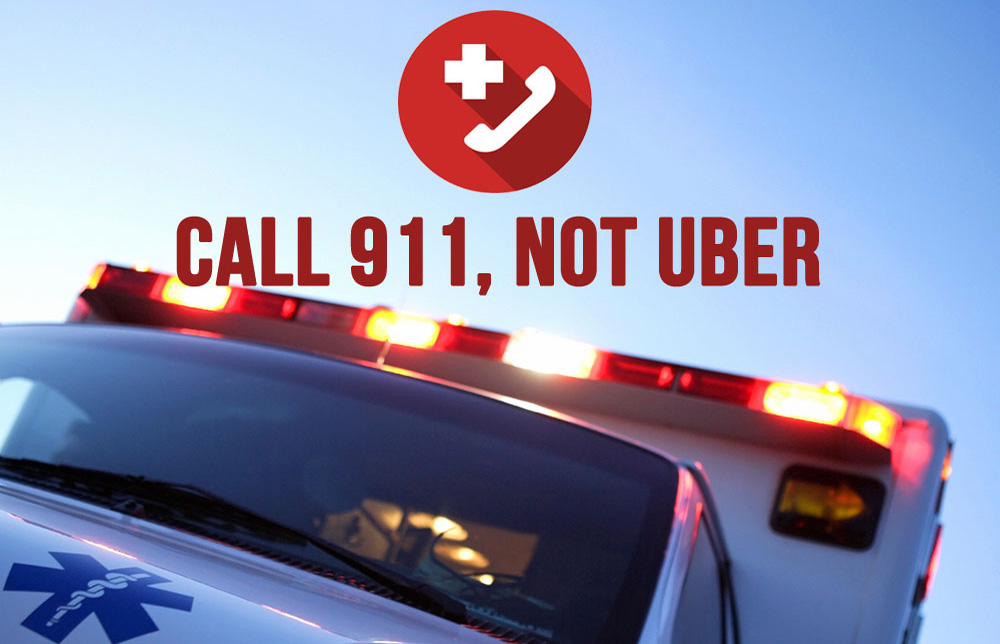
Recently in Boston, an Uber passenger who appeared a bit drowsy asked the driver if the nearest emergency room was at Mass General Hospital. The man said he’d been passing out over the past few days.
“I was a little nervous,” the driver recalls. “I didn’t know what was going to happen.”
Thanks in part to the high cost of ground and air ambulance service, this scenario has become increasingly common. Single trips have cost up to $50,000 or more, with relatively little coverage from Medicare. An Uber ride would cost considerably less, but foolish for the obvious reasons.
First of all, asking a ride-hail driver to take you to the hospital puts them in a compromised position. If they agree to take you, they might be liable should something go wrong. If they refuse, which they have a right to do, it could lower their rating and earning potential.
Then you have yourself to consider. If you needed immediate medical assistance during the ride, no one would be qualified to provide it.
Here’s an intelligent alternative. Medical Air Services Association (MASA) covers best-in-class emergency air and ground transport 24/7 from home or anywhere in the world, plus transportation of vehicles, children, grandchildren, and even pets at no additional cost. There are no premiums, deductibles or other hassles. Ask an AMBA agent about an emergency transport policy endorsed by your association.
And if you’re ever tempted to call Uber in a medical emergency, don’t do it. Take it from an Uber spokesperson regarding the Boston incident:
“Uber is not a substitute for medical professionals. In the event of any medical emergency, we encourage people to call 911.”
SOURCE: https://www.buzzfeednews.com/article/carolineodonovan/taking-uber-lyft-emergency-room-legal-liabilities




